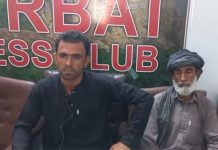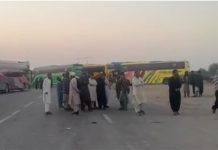Pakistan has been trying to aggressively seek investments from international financial institutions and countries, including South Korea, in energy and other infrastructure projects, especially in Kashmir and Gilgit-Baltistan, both parts of undivided Jammu and Kashmir and claimed by India as its territory.
While South Korea had earlier shown interest, it is now reluctant to invest in these regions of Pakistan. This disinclination is on account of a better international and South Korean understanding of the disputed nature of this region, and the legal complexities that any investment in Gilgit Baltistan and ‘Azad Kashmir,’ would entail.
Not only are these two areas disputed, they are also not formally a part of Pakistan’s Constitution, thereby leaving a large number of questions unanswered, including the citizenship of persons residing in GB and ‘Azad Kashmir‘.
Further, after the announcement of the China Pakistan Economic Corridor ( CPEC) and India’s categorical objection to it, on the grounds that Pakistan and China could not agree to construct an economic corridor that passed through Indian territory, currently “occupied by Pakistan”, doubts have been raised among investors about the economic feasibility of projects in the disputed area.
South Korea’s Daelim Industrial Company Limited, that was leading a consortium to develop the 500 MW Chakothi Hattian Hydro Project on the Jhelum in Muzaffarabad, is re-considering its investment in the project, especially after financiers like the Asian Development Bank, International Financial Corporation and Korea Exim Bank have expressed their inability to finance a project in a disputed area. There is likelihood that other Korean-financed projects in PoK, like the Kohala Hydro Power project, may also be similarly stalled.
South Korea’s decision to pull out of these projects in Pakistan has soured relations between the two countries. Cases of harassment of South Korean nationals living in Pakistan haven’t helped in improving the situation.
In June this year, three South Korean women who, along with some Chinese Christian missionaries, were supposedly preaching Christianity in the Quetta area, were taken into custody by the Pakistani security forces, after two Chinese nationals were kidnapped and killed in Baluchistan by the Laskar-e-Jhangvi al-Alami. Pakistan’s Interior Minister Chaudhary Nisar Ali Khan had accused this group of Christian missionaries of ‘illegally’ preaching their religion, without taking the permission of the local authorities. There is considerable concern in South Korea about the fate of these Korean missionaries, with their local embassy also being denied consular access to them, so far.
The recent visit to Pakistan of Speaker of the South Korean Parliament, Chung Sye-kyun, is not likely to have improved the situation much, given the additional complicating factor of Pakistan‘s deep relationship with North Korea, and mutual assistance the two countries have been rendering to each other in development of their nuclear and missile capabilities.
Baloch activists living in exile in South Korea have also been raising awareness about human rights violations committed by Pakistani state in Balochistan. Members of nationalist organisations Baloch National Movement (BNM) and Baloch Republican Party (BRP) have held many protest demonstrations in different cities of South-Korea including in Seoul.
In March 2016 Baloch activists including women and children walked nearly 700 kilometer from Busan to Seoul to highlight the situation of Balochistan. The walk titled “Freedom March” received media attention and various reports were published in South-Korea press.






























